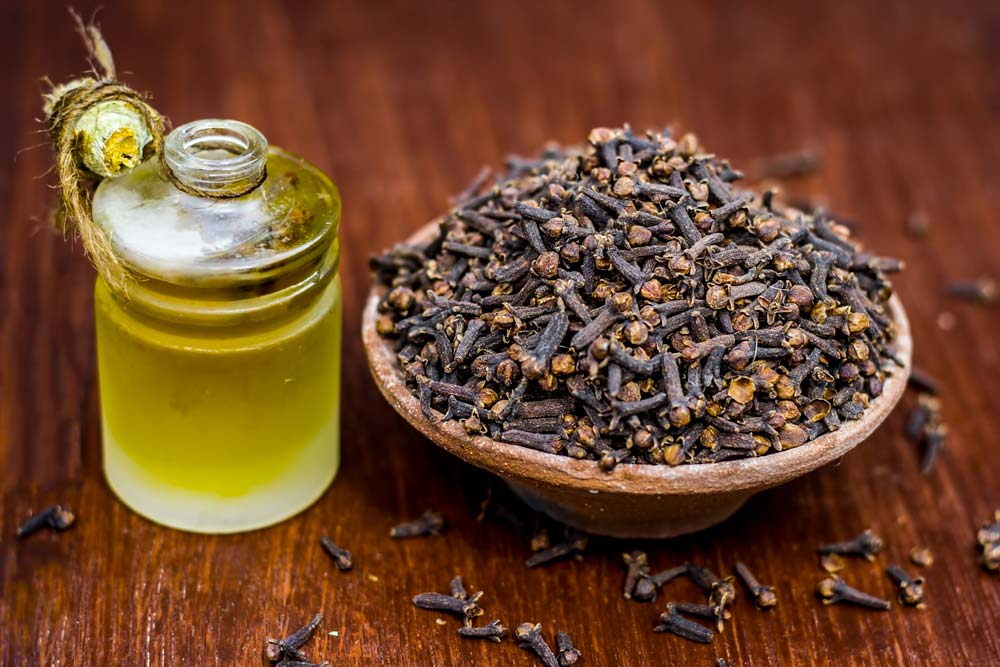Essential Oil for a Toothache: Everything You Need to Know

Essential oils, such as clove bud oil, coconut oil, tea tree oil, lavender oil, and olive oil were humanity’s first form of medicine and were used to treat anything and everything. Nowadays, essential oils are still used just not as much as they once were. There are several ways in which to use essential oils, and in this post, we are looking into the benefits of essential oils for toothaches. Finding out how they work, how to use it, and what precautions you need to take.
Causes of a Toothache
There are many reasons behind a toothache and some are more worrying than others. Tooth decay is a primary cause of a toothache, as is gum disease like periodontist or gingivitis. It could fall down to an infection or trauma to the teeth. Those that grind their teeth, especially in their sleep will probably suffer from a toothache on a regular basis. If a toothache affects you regularly, you should make a trip to the dentist to rule out an abscess.
Why Use an Essential Oil for a Toothache?
It’s always a good idea to try and book into the dentists when you have a toothache to make sure it isn’t because of a serious issue with your teeth or gums. Sometimes, however, toothache can hit you at the most inconvenient time like during the night or in the middle of a workday. In cases like this, it’s great to have a little remedy that you can use to numb the pain until you can make it to the dentist. However, this doesn’t mean you can just pull out the nearest lavender essential oil or cinnamon essential oil and whack a little in your mouth and the pain with instantly go away. So, which natural remedies and essential oils do work for a toothache? Clove oil is a great essential oil for a toothache. You might even remember your grandma or grandpa rooting through the cupboards for clove oil during your youth and they were likely using it for a toothache.
How Does Clove Oil Work for Toothache?
Clove oil has an ingredient called eugenol which provides pain relief when applied to the affected area. This happens because eugenol has natural anesthetic and antibacterial properties which will eliminate the bacteria and numb the pain. The eugenol found in clove oil also has high anti-inflammatory qualities which will reduce swelling and irritation. Cloves have been used for centuries for their numbing and pain relief ability, but historically they would be used as they are rather than as an oil. Today, clove oil is extracted from dried flower buds called cloves using a steam distillation.
How to Use Clove Oil for Toothache
Clove essential oil can be purchased from many supermarkets, drugstores, and health food stores. If you can’t find any in your local area, then whole cloves will also work to combat pain. One thing to note before you use clove oil is that it doesn’t taste very nice. The flavor is really pungent and you shouldn’t swallow it either as there are side effects to ingesting clove oil. You first need to get a cotton ball or a swab and dip it into the clove oil so that it soaks up a small amount. Then, you simply dab the cotton swab or ball around the gum of where the pain is coming from, remember to try and get both sides. If the clove oil is too strong, you can dilute it using some olive oil or coconut oil. In the event of not finding any clove oil and using a whole clove instead, you just need to place the clove on the affected area and keep it there until the pain subsides. Clove powder that is used for baking will work; however, it will not be as effective as clove oil. There are other over-the-counter pain relief medications that share the same eugenol property as clove oil.
Warnings and Side Effects
As mentioned previously clove oil has an unpleasant taste and should not be swallowed. Rare side effects or repercussions from ingesting clove oil could include breathing difficulties, upset stomach, and a burning sensation in the throat and nose. If you suffer from any of these side effects severely, call for medical assistance. Almost all essential oils are recommended for dilution in warm water before use if you are concerned about using clove oil directly on your gums then dilute it first with a carrier oil. Using clove oil as a toothache remedy on children should always be diluted as they will naturally feel the need to swallow. Unfortunately, little medical research has been done on essential oils as the complexity of the topic reaches far and beyond, and so, for this reason, mainstream medical doctors are not likely to support the use of essential oils. Always remember that clove oil is only a temporary solution for toothaches. You need to book an appointment with your dentist as soon as possible for an examination.
Other Essential Oils for Toothaches
Clove oil isn’t the only oil that is used for a toothache. Peppermint oil is another common home remedy for a toothache. It is found in many dental products and has antiviral and antibacterial properties. Peppermint oil is also considered a mild anesthetic and so it could be useful as a temporary toothache remedy. Tea tree oil is another powerful essential oil. It has antibacterial, antifungal, and antiviral properties with a mild anesthetic quality. Lavender shares many of the same benefits and will help the body to fight infections. Any essential oil that is used as a remedy for a toothache should never be swallowed. They need to be used with care and always diluted as they are extremely concentrated. If there are any unusual side effect discontinue use and call for medical assistance.
Essential oils like every other product or natural remedy have potential side effects and precautions. But that doesn’t mean you shouldn’t use them, it just means you need to use them with care. A toothache is one of the most irritating aches you can have, as you aren’t able to touch it, or put a hot water bottle on it, you are just stuck with a sharp pain that can drive you crazy. Having a remedy that can numb the area until you can get to the dentist will make the world of difference. If you are unsure about using clove oil as a toothache remedy, you can always ask your dentist during your next appointment.
Relate Posts to Read:
Do Home Remedies for Tooth Decay Work?


